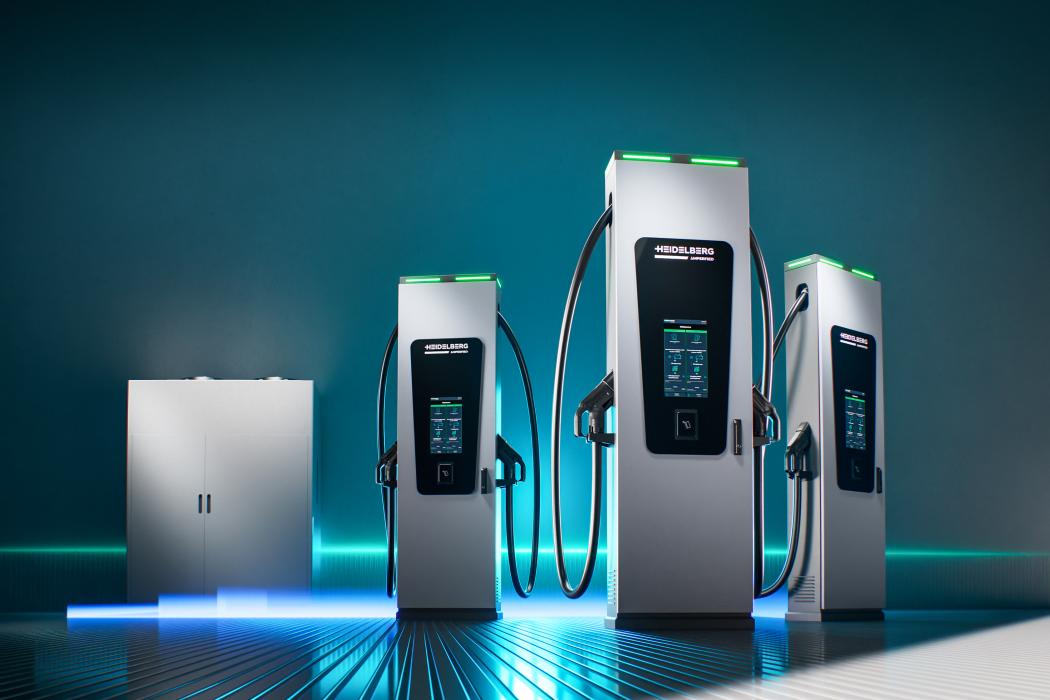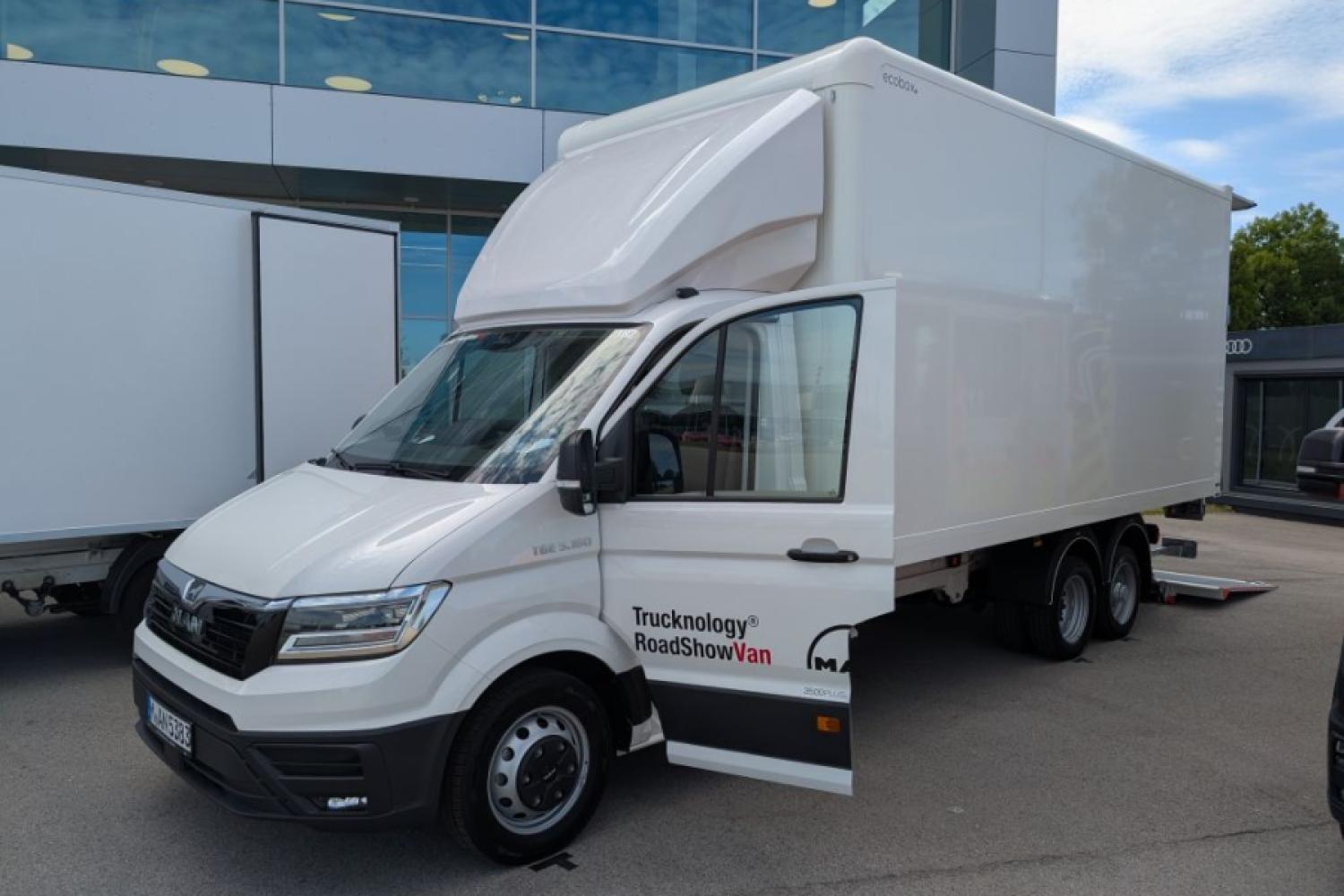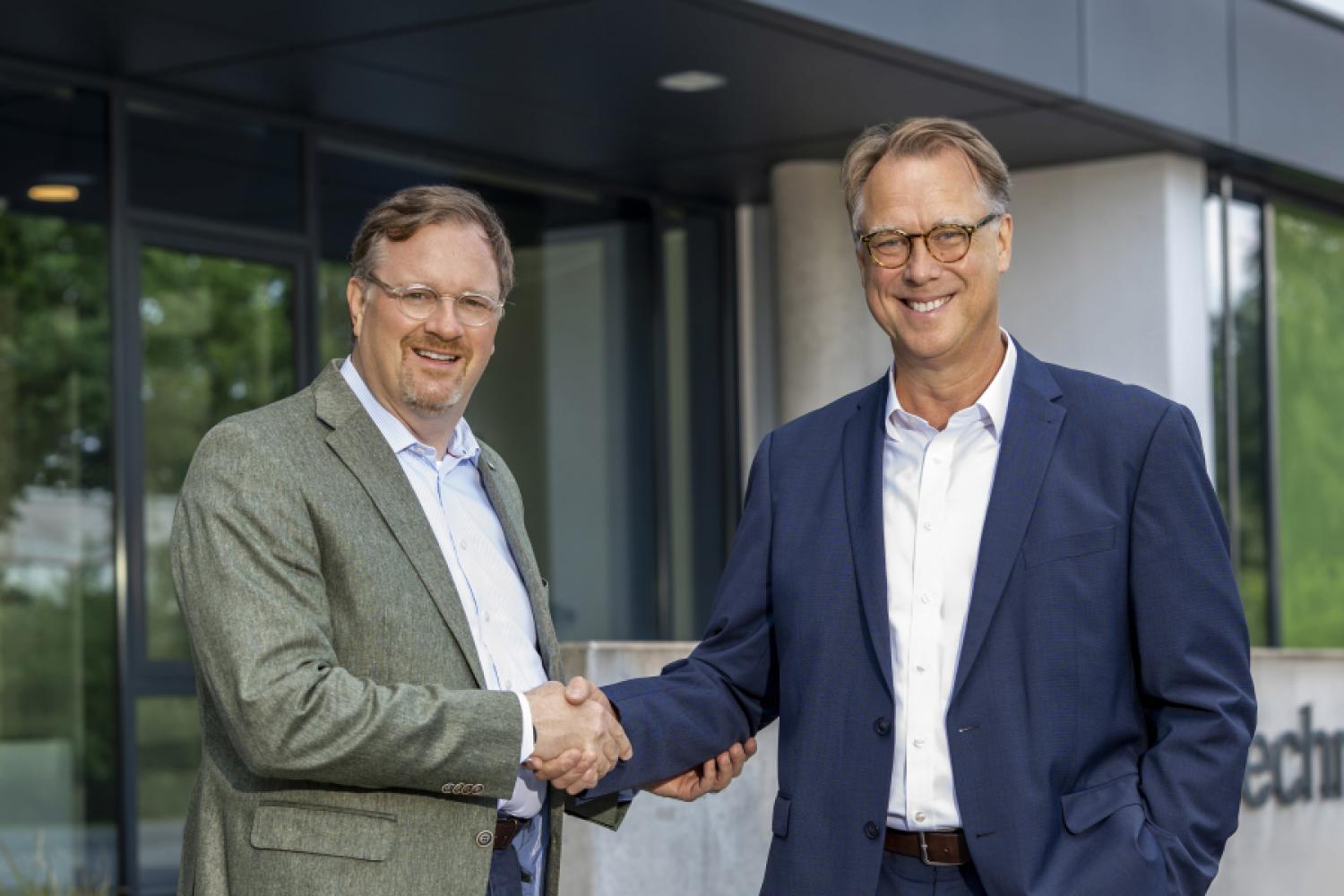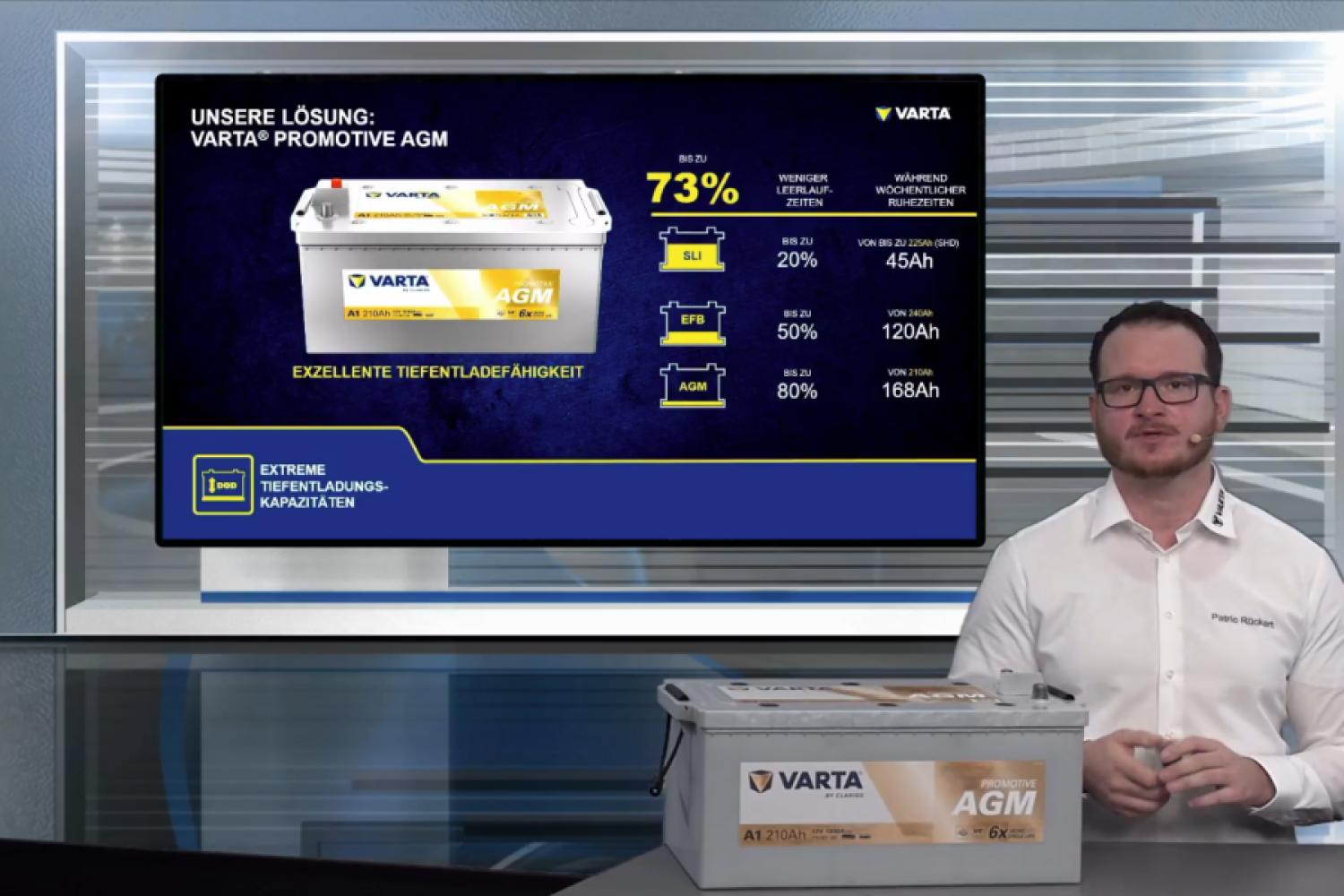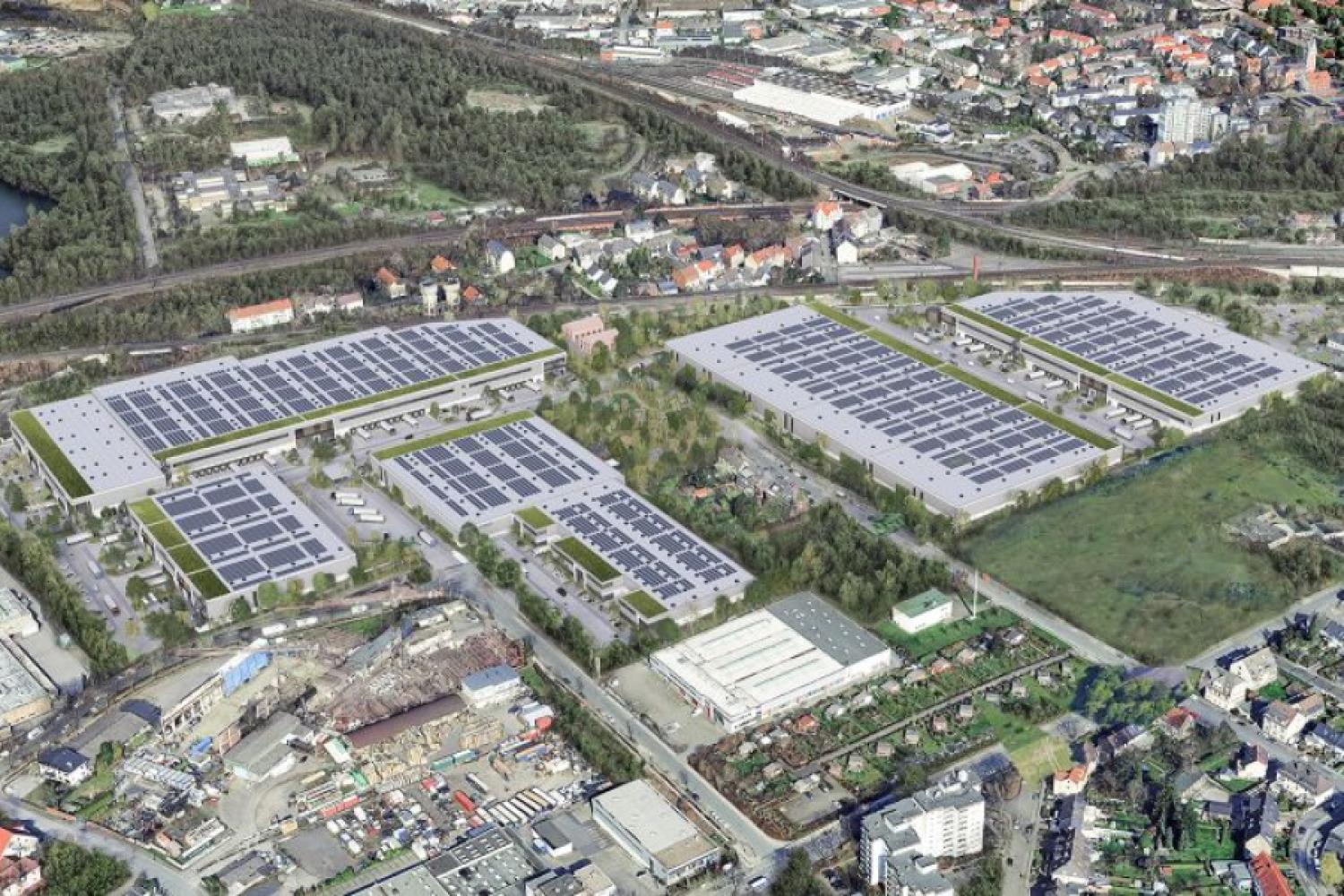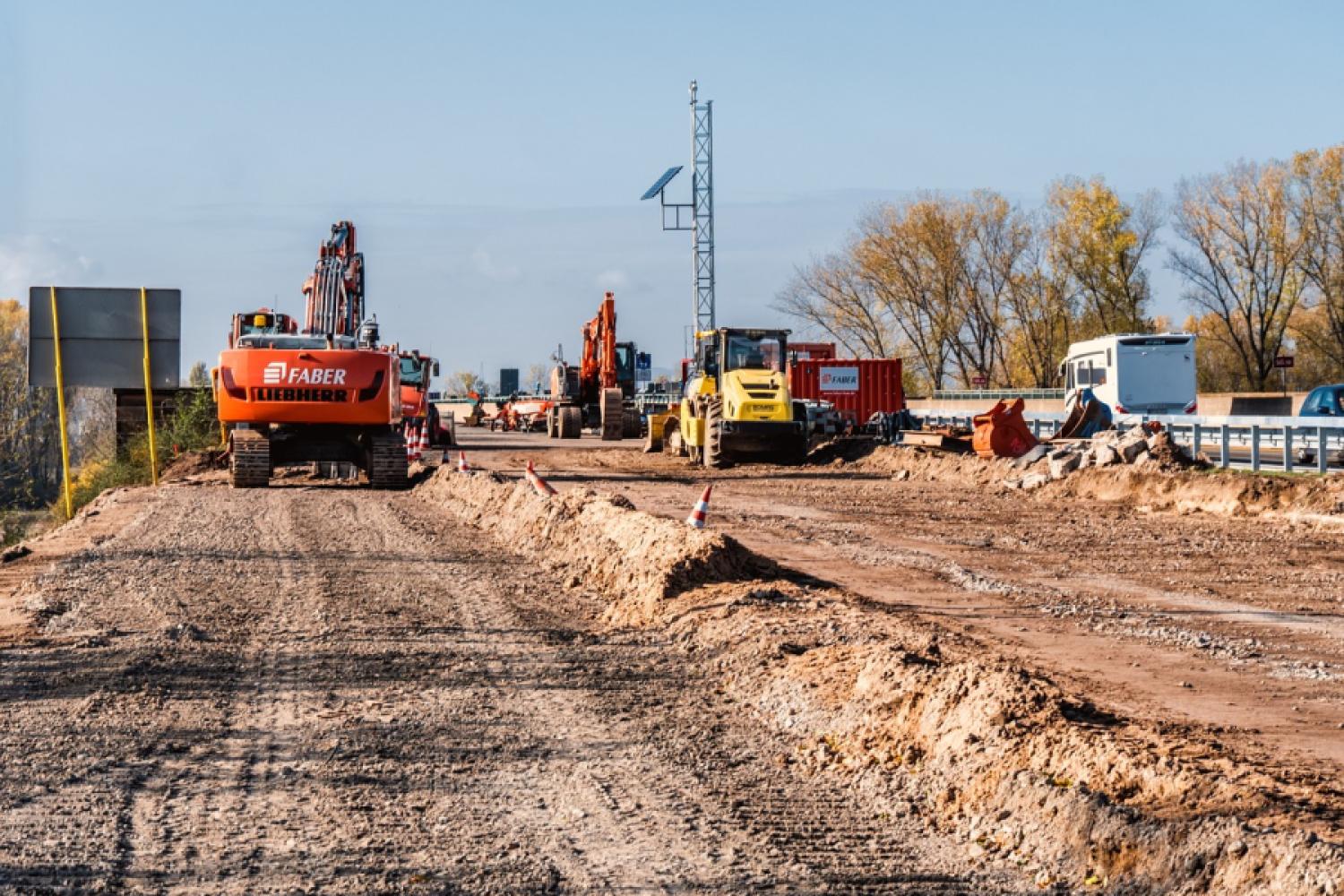The Amperfied GmbH is entering the market for fast charging solutions. The subsidiary of Heidelberger Druckmaschinen AG (Heidelberg) is expanding its product portfolio with a system specifically designed for the requirements of commercial charging infrastructure. According to a statement, the efficient and reliable supply of large fleets is to be a central focus—a key issue for many freight companies in road freight transport.
Heidelberg comments that a market under increasing pressure is being addressed. Operators of charging parks, logistics depots, or freight fleets rely on highly available charging solutions to keep supply chains stable and bring vehicles back on the road with minimal delay.
"Ensuring high throughput and availability is the central challenge for operators of charging infrastructure in charging parks, logistics companies, or retailers," explains Jürgen Otto, CEO of Heidelberger Druckmaschinen AG.
According to the company, the charging unit is based on a modular system that can be flexibly configured. Up to six so-called dispensers, each with two charging points, can be
supplied by a central power unit. The control distributes the charging capacity dynamically, ensuring optimal energy use, especially with fluctuating usage. For example, up to twelve charging points with 300 amps or 240 kilowatts each, or eight charging points with up to 500 amps or 480 kilowatts, can be chosen depending on operational requirements.
An additional advantage for use in freight yards: The dispensers require little space. The compact design allows installation even in narrow charging zones without blocking parking spaces. A 15.6-inch touch display facilitates operation, and the CCS2 connector ensures compatibility with a wide range of vehicles—from cars to trucks.
In addition to the hardware, Heidelberg also emphasizes a comprehensive service package. This includes features for predictive maintenance and monitoring. The software is based on Pionix Basecamp, a solution based on the open-source framework Everest, which stands for high interoperability and continuous development.
"With 175 years of expertise in high-performance machine construction and the reliable operation of capital goods, Heidelberg brings
its entire industrial competence," continues Otto. Heidelberg aims not only to supply technology but also to ensure the reliable operation of the infrastructure. For this, the company relies on a close-knit service and logistics network that is already in use worldwide.
A central feature of the new offering is the so-called availability-based operating hours model. Instead of a classic investment in hardware, customers only pay when charging power is actually delivered. This not only lowers the entry barrier for operators but also ensures a fair risk distribution, according to Robin Karpp, Managing Director of Amperfied GmbH:
"Instead of buying the pure hardware, our customers only pay when they can actually sell energy. This creates aligned interests. We are responsible for a functioning charging infrastructure. Operators only need to handle the utilization of the charging park."
With this model, Heidelberg aims to take a leading role among system providers for commercial charging infrastructure in Europe in the medium term. The focus is not on
individual sales but on the ongoing operation with stable, recurring revenues. The new product is another step in the company's strategic direction to explore new industrial business fields.
The market background for this offensive is clear: According to recent studies, the number of battery-electric commercial vehicles will increase significantly worldwide. The Boston Consulting Group expects that modular charging systems, like those now offered by Amperfied, will play a central role in the future. The German Association of the Automotive Industry (VDA) also expects an increase of 75 percent in purely battery-electric vehicles in Germany for the current year—with a rising trend.
For freight forwarders and logistics service providers, this development means a clear direction: Those who want to build or expand charging infrastructure can hardly avoid intelligent, scalable, and service-oriented solutions. With Amperfied Dynamic DC, Heidelberg is now bringing a system to the market that is specifically tailored to the requirements of commercial use—and thus also to the needs of road freight transport.
